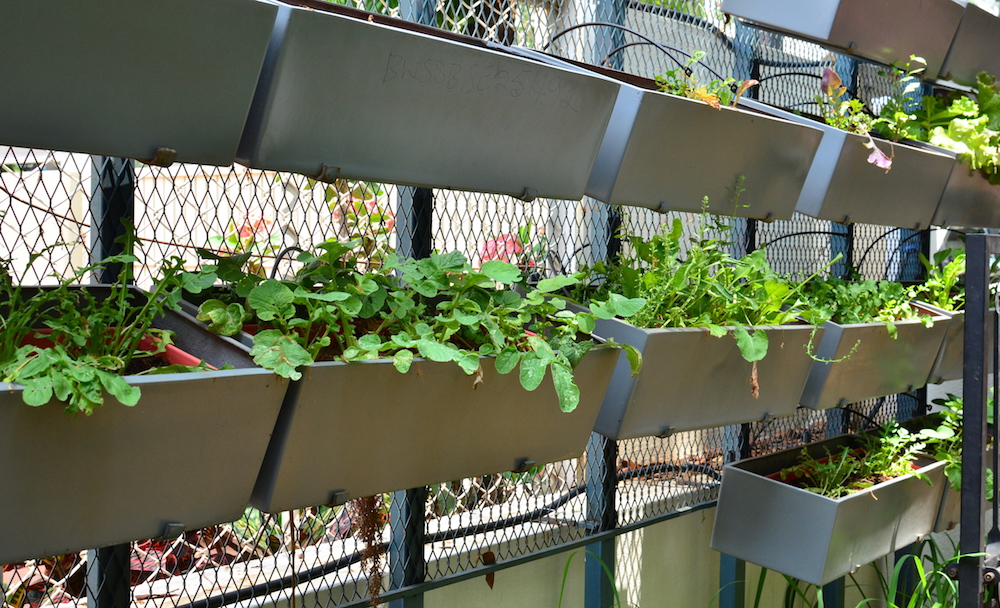A Farm-To-Table Restaurant In Bengaluru Where Gastronomy And Sustainability Intersect

The newest addition to Bengaluru’s already crowded restaurant scene is like a breath of fresh air. Quite literally, nestled as it is on a broad, raintree-lined avenue in one of the city's older neighbourhoods. Go Native is a farm-to-fork restaurant, lifestyle store, yoga studio and community space that merges sustainability and gastronomy, but not at the expense of comfort or taste. The restaurant is housed in a traditional home which has been refurbished, retaining old doors and windows. An airy, open balcony shaded by large trees overlooks an al-fresco dining area in the garden below.
“It began,” says Jenny Pinto of the founding team, “with the idea of addressing sustainable living holistically, supporting as many sustainable practices as we can and incorporating as many green features into the space as possible.” A month into business and Go Native is already attracting the city’s environmentalists and aficionados of organic food and artisanal products.
Image: Go Native
Ingredients, key of which are organic, are sourced fresh from farmers around the city practising chemical-free, environment-friendly agriculture. The vegetarian menu changes seasonally to feature local produce such as Bengaluru's favourite avarekai and young jackfruit. It showcases some regional favourites: a warming khichdi, frilly-edged akki rotti, a vegetarian galouti - familiar, homey flavours with unexpected touches to much overlooked vegetables such as yam. There is also a place for unprocessed whole grains and millets on the menu. Food is served in a no-nonsense manner in copper thalis, redolent of lunchtime at your grandmother’s.
"It began with the idea of addressing sustainable living holistically, supporting sustainable practices and incorporating as many green features into the space as possible."
Image: Eartha
"As a bulk generator of waste, Go Native's commitment to not only process its wet waste but minimise its dry waste is commendable," says Malini Parmar, founder of Stonesoup, the waste management consultancy that Go Native partnered with to manage its waste better. Kitchen scraps and food waste (between 20kgs and 40 kgs a day) are composted on the owners' farm outside the city; dry waste such as glass is recycled responsibly; and dry flowers and leaves from the garden make their way into a leaf composter, custom-built to be accommodated on the restaurant's premises.
Plastic, if used at all, is kept to a minimum - glass bottles take the place of disposable water bottles, bagasse boxes stand in for plastic takeaway containers, and biodegradable tissues replace cloth napkins, thereby saving water. Going the extra mile, Go Native has even provided its suppliers cloth bags to deliver weekly produce in.
"Cling wrap made up a significant part of the restaurant's dry waste as did yoghurt packaging," says Parmar. Stonesoup is currently working with the restaurant to test out the feasibility of reusable cling wrap made of beeswax, which the staff is learning to make in-house. "We're also looking at the viability of setting yoghurt in-house to further eliminate plastic packaging," she adds.
Garden litter composted on site. Image: Eartha
A trial run is on to replace the cleaning liquids used at the restaurant with natural substitutes made of fermented citrus peel. As more citrus fruits work their way into the menu over the summer, the team hopes to prepare its cleaning liquids in-house.
The building is a 100 percent solar powered and designed to harvest rainwater from the rooftop. Planter boxes lining the walls, soon to be fed with the restaurant's compost, grow leafy greens and herbs that make their way into salads. It doesn’t get more farm to fork than that, we say.
A store on the ground floor sells organic food and artisanal breads, essential oils and handmade soaps, upcycled home decor, handcrafted furniture, toys, khadi and handloom textiles - all of which are made either using environment-friendly materials or in ways that support craft communities across the country and encourage native skills through fairtrade practices.
No starched white tablecloths here. Image: Eartha
Seeing itself as much more than a restaurant and store, Go Native organises sustainability events the first of which was a nature walk around the neighbourhood led by well-known naturalists and more recently a workshop on making plant-based holi colours. A small room round the back hosts a store selling composting and gardening supplies. Composting workshops will soon be a regular feature at the restaurant and visitors to the store can buy Go Native’s compost.
As its tagline, ‘Local. Connected. Sustainable.’ announces Go Native manages, without being preachy or priggish, to inspire guests with messages of environment-friendly living and offers them all the solutions they need to get started.
So while we wait for its Indiranagar outpost to start taking reservations, head over to Go Native for a meal in the company of trees.
Getting there: #39, 10th Main Road, 5th Block, Jayanagar, Bengaluru. Call +91 9535527883.
Is your business or workplace planning to go zero-waste? Write to malini.parmar@stonesoup.in









